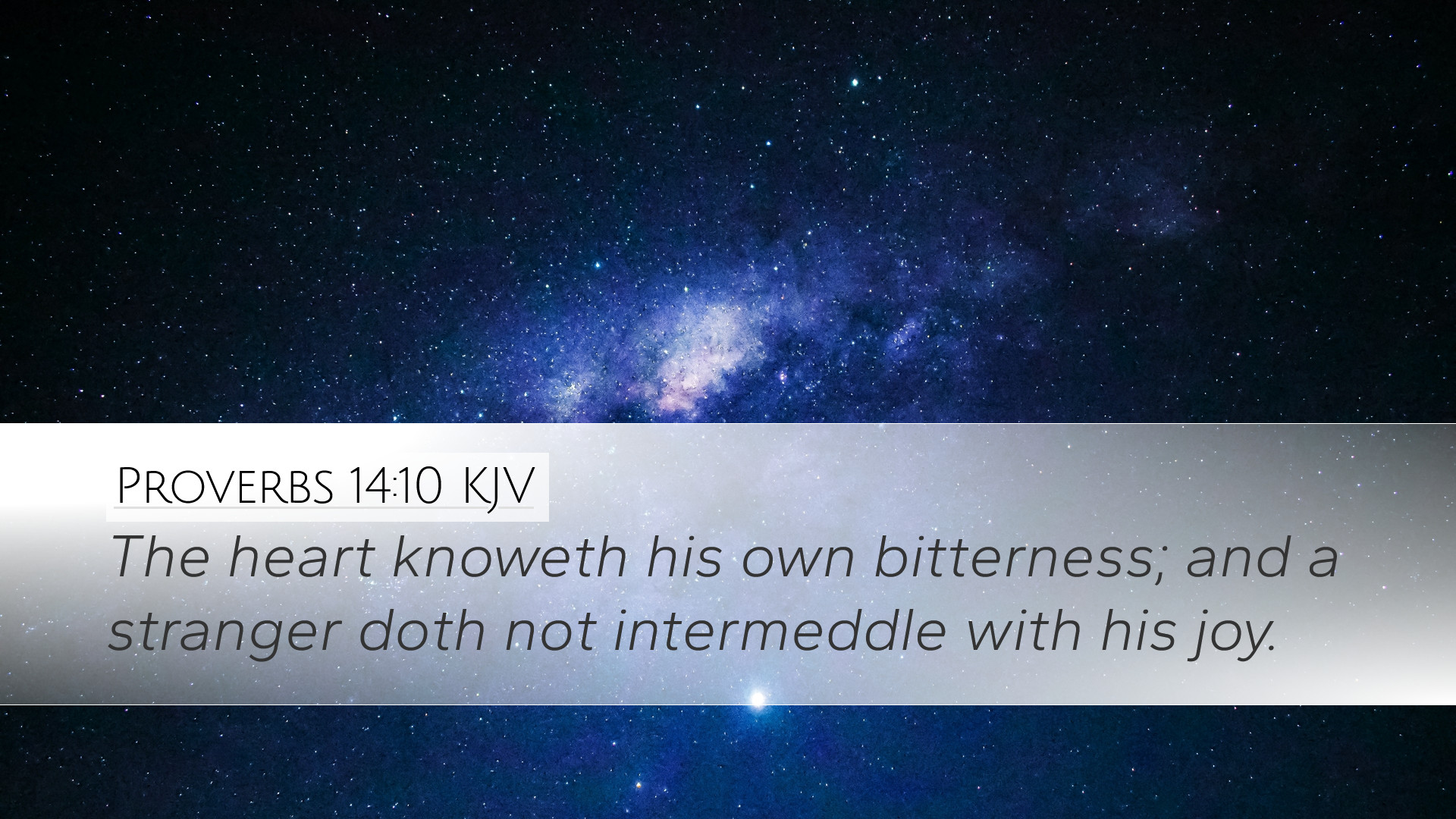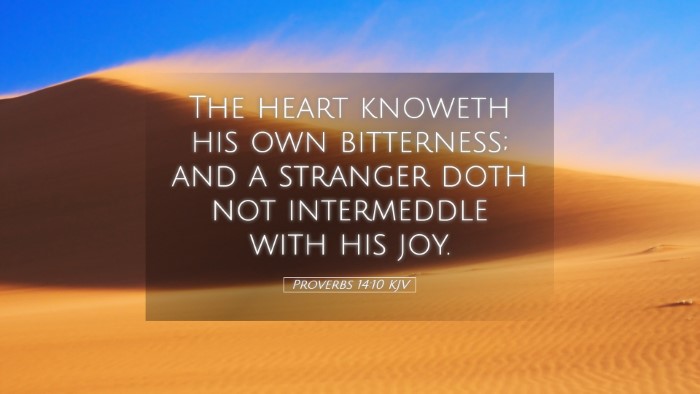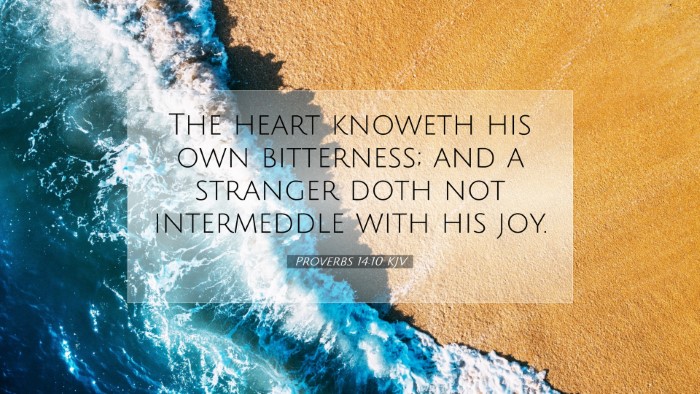Proverbs 14:10 Commentary
Proverbs 14:10 states, "The heart knows its own bitterness, and a stranger does not share its joy." This verse provides profound insight into the emotional landscape of human experience, highlighting the intrinsic connection between personal suffering and the unique nature of individual joy.
Understanding the Verse
The verse articulates two distinct yet related elements of personal experience: sadness and joy. The first part, "The heart knows its own bitterness," speaks to the deep and often uncommunicable nature of personal sorrow. It emphasizes that true understanding of one's pain resides within the individual.
The second part, "a stranger does not share its joy," indicates that the sweetness of personal joy is profoundly intimate and may not always be fully appreciated or shared by others.
Insights from Matthew Henry
Matthew Henry provides a pastoral perspective on this verse. He points out that the heart is the seat of emotions and that bitterness is a weighty affliction that can profoundly affect one's spiritual and emotional state. He emphasizes that while others may observe the outer circumstances, they cannot fully grasp the internal struggles an individual may face.
Moreover, Henry comments that personal joys, often stemming from private victories or divine blessings, can be difficult to communicate to outsiders. He suggests that this creates a sense of isolation, as our most profound experiences are comprehended only by ourselves and God.
Insights from Albert Barnes
Albert Barnes notes the personal and subjective nature of both bitterness and joy expressed in this Proverb. He argues that happiness is often diluted when shared with those who cannot relate. Barnes explains that the emotional depth of suffering is rarely apparent to others, leading to misunderstandings regarding one’s state of well-being.
He articulates that while we may strive to communicate our innermost feelings, the innate complexities of human experience mean that true empathy is often elusive. This reality invites readers to cultivate a deeper understanding of their hearts, recognizing that each person carries their own burdens and joys that may go unnoticed by those around them.
Insights from Adam Clarke
Adam Clarke delves into the implications of sharing emotions within community life. He posits that while a stranger may not fully appreciate the joys one feels, it underscores the importance of fostering genuine relationships built on authenticity where deeper understanding can occur. Clarke emphasizes that the richness of joy comes from shared experience but acknowledges that full comprehension remains a personal journey.
Additionally, Clarke highlights how this verse reminds us to remain sensitive to the feelings of others. The bitterness borne in silence can lead to a profound disconnect in relationships. Recognizing that everyone has stories hidden in their hearts invites empathy and fosters deeper connections among individuals within faith communities.
Theological Implications
This verse invites theological contemplation regarding God's omniscience and His intimate understanding of our emotional experiences. The acknowledgment that "The heart knows its own bitterness" suggests that God is acutely aware of our suffering, even when we feel isolated in it. This reflection can inspire hope and comfort for believers, knowing that their struggles are not overlooked or unacknowledged.
Furthermore, the understanding that joy is deeply personal reinforces the importance of individual narratives in the Christian experience. Each believer's journey is unique, crafted by God, and this individuality is vital for the body of Christ, illustrating the diverse ways God interacts with His people.
Practical Applications
-
Empathy in Ministry:
Pastors and leaders are encouraged to foster environments where members feel safe expressing personal struggles. Recognizing that everyone carries their own burdens can cultivate a culture of care and support.
-
Celebrate Individual Journeys:
In church settings, sharing personal testimonies can foster joy and encourage others. However, recognizing that not all joys may resonate with others prompts sensitivity in how we share these experiences.
-
Prayer and Reflection:
Encouraging individual and corporate prayer can facilitate the sharing of burdens and joys, allowing for deeper connections among members of the faith community.
Conclusion
Proverbs 14:10 offers a poignant reflection on the complexities of human emotions. Through the insights provided by Matthew Henry, Albert Barnes, and Adam Clarke, we gain a multifaceted understanding of both the bitterness that resides in the heart and the joy that, while personal, can create connections among believers when fostered authentically. This verse serves as a reminder of the profound depth of individual experiences, inviting pastors, students, and scholars to cultivate deeper empathy and awareness within their communities.


